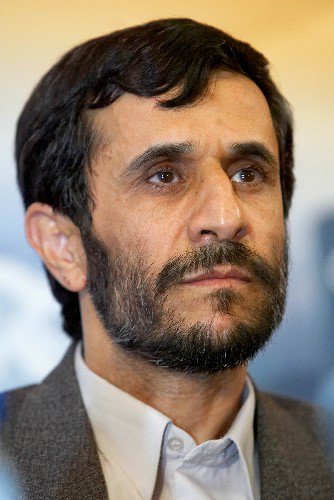Iran prepared to endure history’s blows

Editor's Note:
A new round of talks over the Iranian nuclear crisis is set to begin in Moscow on June 18, but prospects are dim as a senior Iranian negotiator recently warned of a faulty preparation. What is Iran's stance on the nuclear issue? How does Iran see the current dynamics in the Middle East? Hong Kong-based Phoenix TV (PTV) interviewed Iranian President Mahmoud Ahmadinejad (Ahmadinejad) on these issues during his recent visit to Beijing.
PTV: What has changed in the last five years for Iran?
Ahmadinejad: A people is like a river. The water is never the same. But the river stays the same while the water changes. It is the same with an individual's role in his or her people. There are always individuals born in the world and it's natural that they will leave the world one day. But the people always exists.
Iran is completely different from how it was 20 years ago, and even not comparable with how it was five years ago. We have been dedicated to accelerating development. I feel very proud for this.
Our region and the global pattern have been changing. Parts of this change are not favorable to us. But from a broader view, our people can actually benefit from the challenges if we can overcome them.
The place we are at currently is quite different from the place we should be at. Our efforts do not solely belong to the people of Iran but the international society as well. There should be a fair system taking charge of the whole world. A people should endeavor to improve the whole world system while boosting its own growth.
PTV: What is Iran's stance on the nuclear issue?
Ahmadinejad: The nuclear issue in Iran is very transparent. We are a member of the International Atomic Energy Agency and it has been supervising us. But the Iranian nuclear crisis is due to other factors.
Do you think the Western countries have a problem with nuclear bombs? They themselves have thousands of nuclear bombs and missiles. And they show no concern about Israel's nuclear bombs as well.
However, when the uranium enrichment of Iran reached 20 percent, the West thought we were dangerous. But which is more dangerous, a 20 percent pureness of uranium enrichment or the nuclear bomb?
Before the Islamic Revolution (1978-79), we had an autocratic government which depended on the Western countries. The West provided the autocratic government with nuclear plants, and uranium enrichment technology, together with six treaties in regard with the nuclear power. But our people did not need this.
After we were liberated, the West began to adopt a hostile attitude toward us.
Now they use the nuclear issue as an excuse. They are against anything that can bring benefits to our national development. The West wants us to lag behind and live in poverty so we can rely on them. This is where the real problem lies.
When we hold talks, the West fails to point out the problem. We will keep on talking to them and prove our rights with a positive attitude.
PTV: What helps Iranians endure under pressure?
Ahmadinejad: The Iranian people have a history of thousands of years, not a couple of centuries. We have gone through ups and downs, and big events as well.
There's no doubt we can get through this one. We believe in the future for we believe in our people and our God.
PTV: How do you feel about the contacts between Iran and China in the past five years?
Ahmadinejad: I think the mutual trust between Iran and China has been intensified. The cooperative territories have been broadened too. The relationship between Iran and China is historic. The termination of the Silk Road was Iran, while the starting point was China. There's a profound history and culture along the Silk Road.
In recent years, the cooperative development between Iran and China has been swift. In regard to international cooperation, our stance is coherent and thus we should cooperate.
PTV: What do you think of UN special envoy Kofi Annan's proposed peace plan in Syria?
Ahmadinejad: I don't know the details of Annan's recent plan. But we have two clear stances on the situation in Syria. We believe all peoples deserve freedom, and national stability. And to obtain this proper right, only peaceful methods should be adopted. NATO and the West only worsen the situation of the nations they interfere with.
We think the Syrian people are great. If they would like to carry out reform, they can only do it under a peaceful environment.
But the NATO members believe that only conflicts in other nations can ensure their benefits. So generally they want to speed up the contradictions between peoples. It will be much better if they could coordinate a relationship between the Syrian government and the opposition parties.
PTV: Will Syrian President Bashar al-Assad step down under external pressure?
Ahmadinejad: I don't think we should interfere in the affairs of other nations. The Syrian people and its government should make the decision by themselves. We should prevent killing and hatred. But there should be no external interference. We cannot ask Assad to stay or leave. Every people has its own interests.
If we respect other people, there would be no war in the world. We should build an environment in which the Syrian people can make their own decisions. Fighting will definitely be no help, nor would interference.